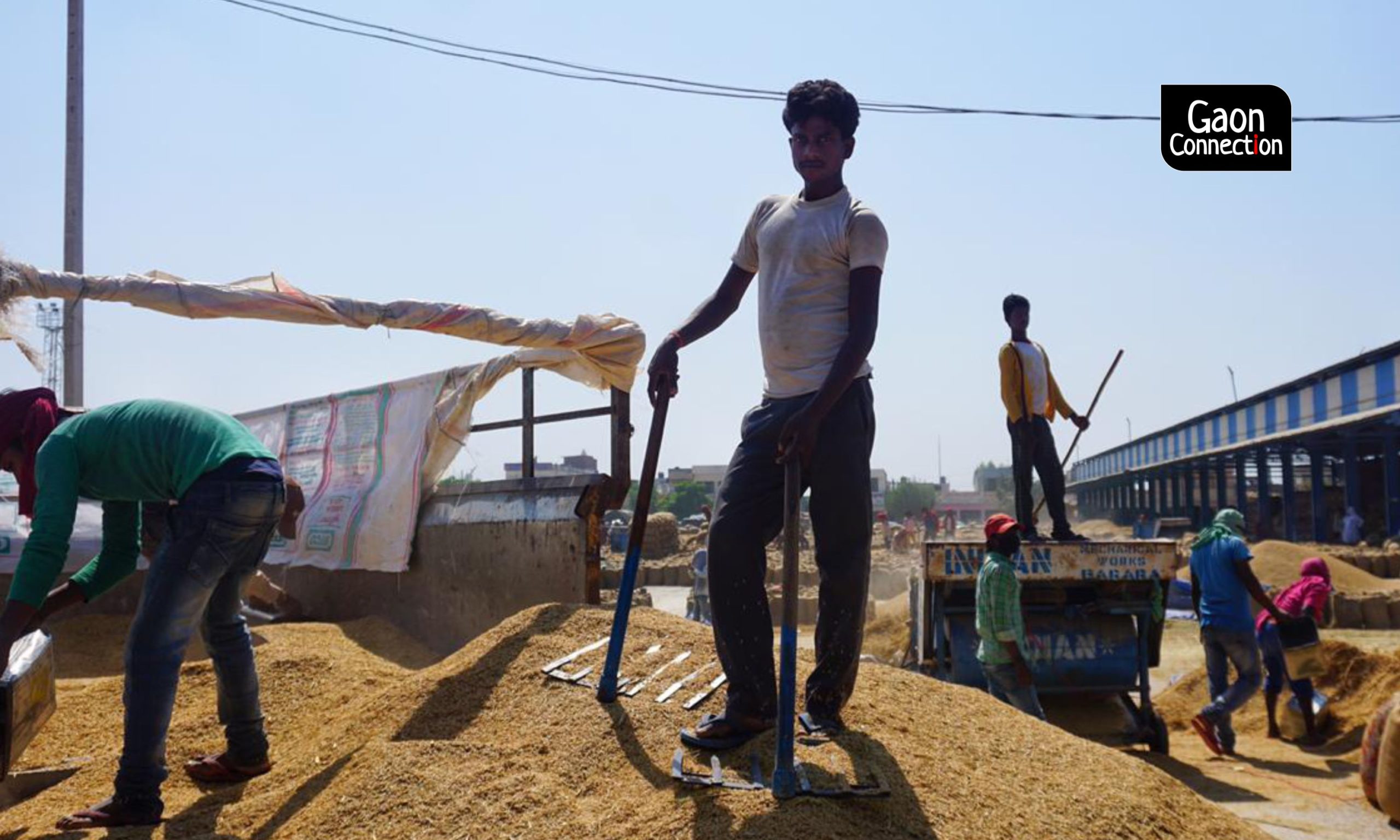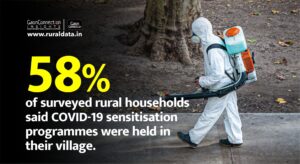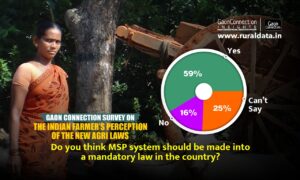Earlier this month, 25-year-old Rohit Baghel set out to sell his yield of 290 quintals (32 tonnes) of maize that he had grown in his 26 acres (10.5 hectares) of land, at the mandi, confident he would get the Central government-fixed minimum support price (MSP) of Rs 1,850 per quintal for his produce. But he found the mandi shut.
“I had to sell my maize to the traders outside the mandi at Rs 870 a quintal. I lost Rs 980 on every quintal I sold,” Baghel, a young farmer from Jaitpura Kalan village of Seoni district in Madhya Pradesh, told Gaon Connection. Baghel said he incurred a loss of nearly three lakh rupees.
Not being able to sell at the mandis at the MSP, was one of the biggest fears of the farmers who had loudly voiced their protests before the agri bills were turned into acts on September 27.
Earlier this month, between October 3 and October 9, Gaon Connection conducted a rapid survey of 5,022 farmers across 53 districts in 16 states, to understand their apprehensions and fears about the the three new laws – The Farmers’ Produce Trade and Commerce (Promotion and Facilitation) Act, 2020; The Farmers (Empowerment and Protection) Agreement of Price Assurance and Farm Services Act, 2020; and The Essential Commodities (Amendment) Act, 2020.
The results of the survey are released as the ‘The Rural Report 2: The Indian Farmer’s Perception of the New Agri Laws’ .
Of the total respondent farmers, 39 per cent of them believed that the agricultural laws, particularly The Farmers’ Produce Trade and Commerce (Promotion and Facilitation) Act, 2020, would usher in the end of the MSP system. There is nothing in writing in the act that speaks of safeguarding MSP, and more than half the respondents in the survey (59 per cent) wanted a law that makes MSP compulsory. The loudest voices for a mandatory MSP law came from the farmers of the northwest region (81 per cent) that includes the predominantly agrarian states of Punjab, Haryana and Himachal Pradesh, followed by 44 per cent from the western region, that includes Maharashtra, Gujarat and Madhya Pradesh.
Uncertainty over mandis accepting their produce and selling it at MSP, is seeing some farmers take their business elsewhere, even though it means getting a rate lower than the MSP. The central government has fixed the price of paddy at Rs 1,868-Rs 1,888 per quintal, but few farmers are being able to sell at that price. It emerged from the Gaon Connection survey that 36 per cent of the respondent farmers preferred to sell at the government mandis.
“I went to the mandi and found paddy was barely able to fetch eleven hundred to twelve hundred rupees per quintal there. So I sold my crop to a mill,” Rajendra Singh of village Athkohna Salarpur in Lakhimpur district of Uttar Pradesh told Gaon Connection. The mill paid Singh Rs 1,400 per quintal because the farmer had accepted a payment deferment of one and a half months for his yield of 300 quintals (33 tonnes) of paddy.
In the meanwhile, farmers in Punjab and Haryana continue to protest and Punjab’s chief minister, Amarinder Singh recently introduced three amendment bills against the central agricultural laws in the Assembly, that say that anyone who procures or sells paddy or wheat produce below the MSP, will face a three-year sentence and be fined. Punjab has become the first state to introduce a bill in the Assembly to bypass the agricultural laws of the central government.
The Gaon Connection’s recent survey revealed that medium and large farmers (75 per cent) predominantly sell their produce at MSP.
Region wise, 78 per cent of the farmers in the south in Kerala, Telangana and Andhra Pradesh sell their crops at MSP, followed by 75 per cent of them in the northwest region, in Punjab, Haryana and Himachal Pradesh; 71 per cent in the western region of Maharashtra, Gujarat and Madhya Pradesh, and 66 per cent in the east-and-north-east region of West Bengal, Assam, Odisha and Chhattisgarh. Only 26 per cent of the respondents in Uttar Pradesh, Bihar and Uttarakhand sell at MSP, making it the lowest percentage of farmers selling at the minimum support price.
Read the story in Hindi.



















